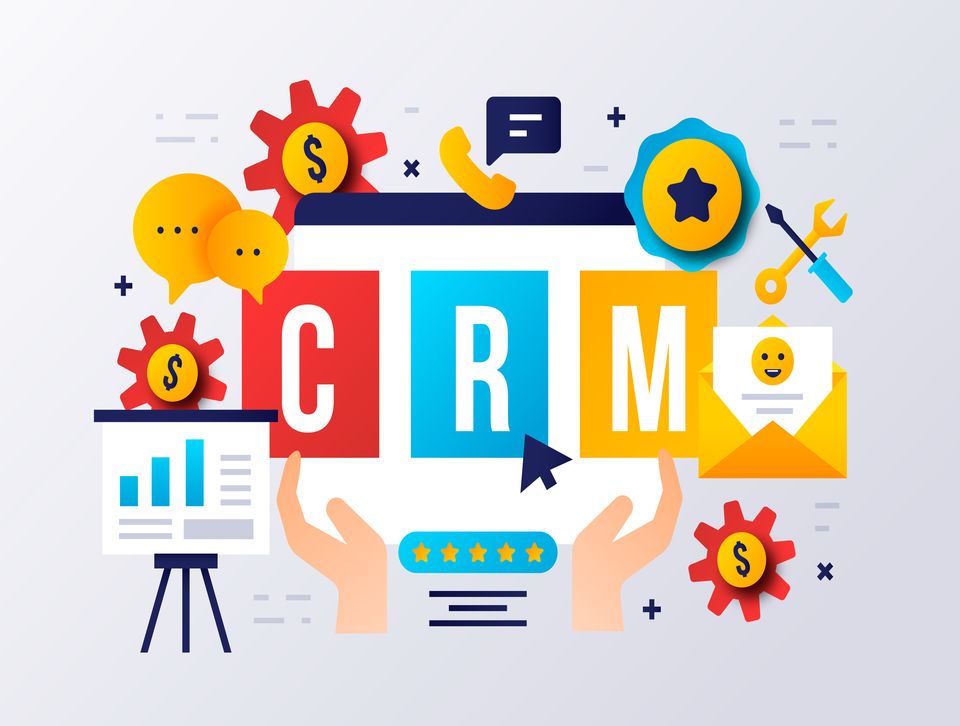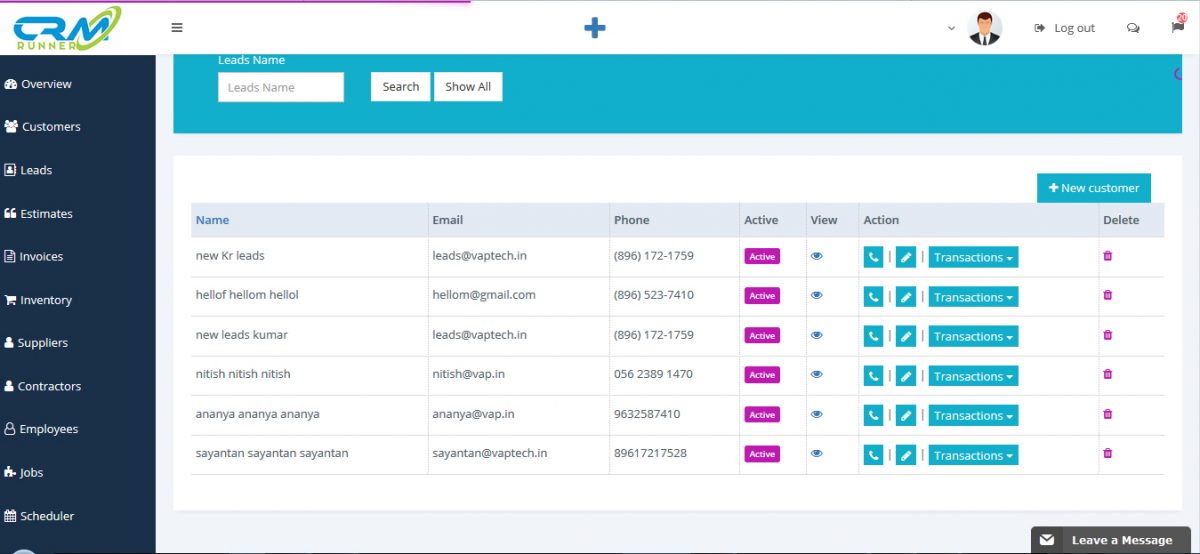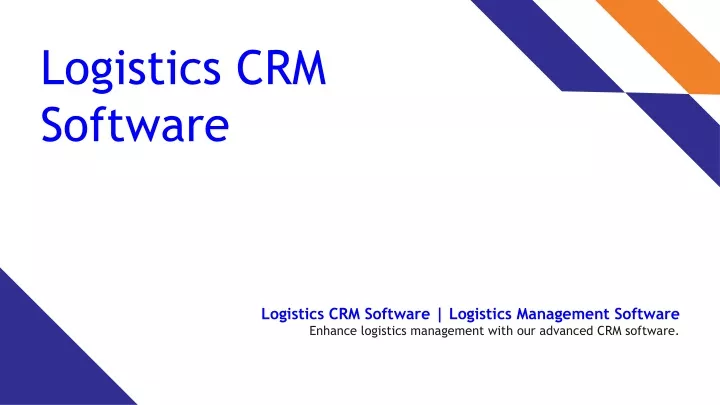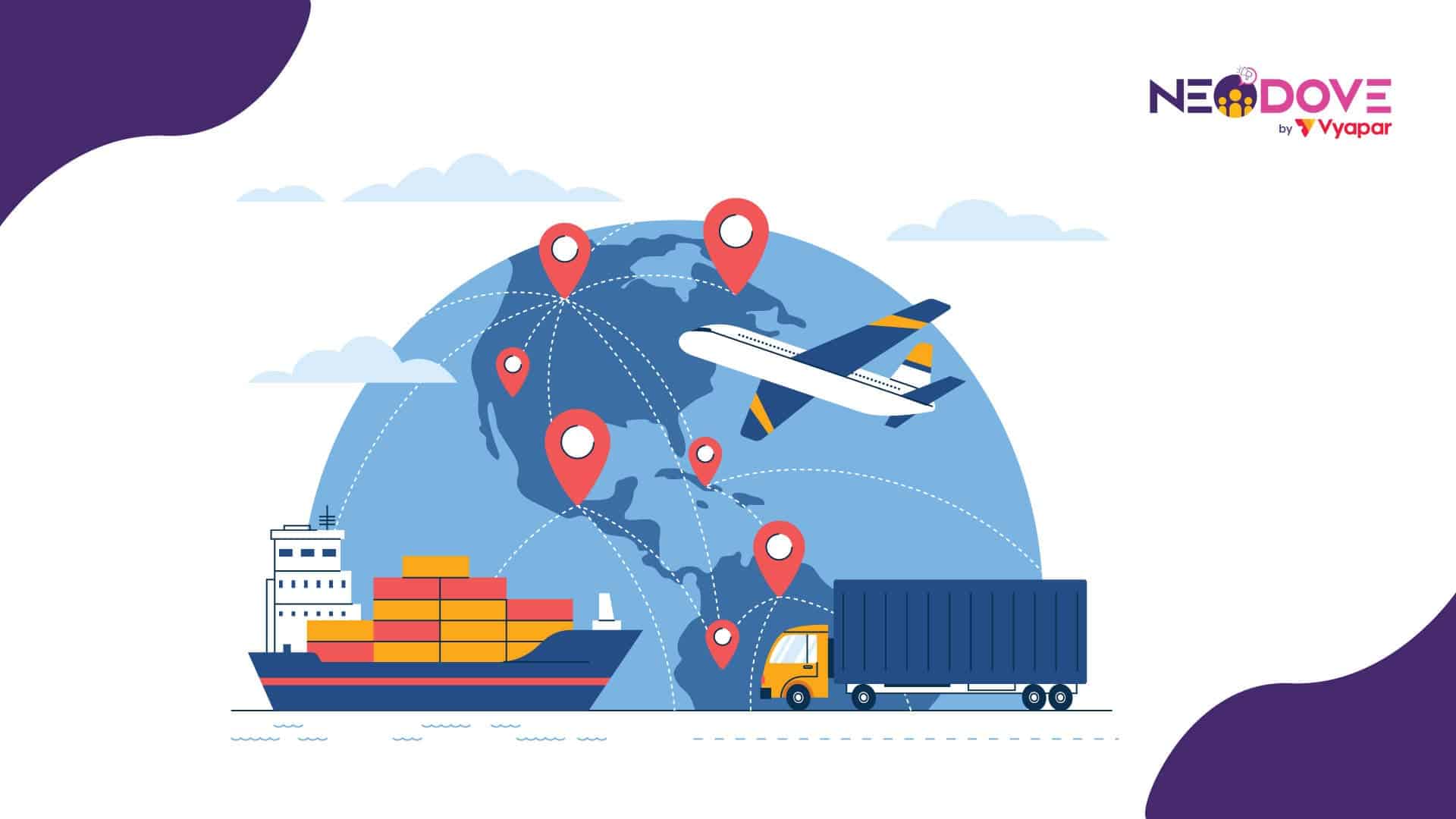As CRM software for logistics takes center stage, this opening passage beckons readers with casual formal language style into a world crafted with good knowledge, ensuring a reading experience that is both absorbing and distinctly original. The integration of CRM software within the logistics industry promises a transformative journey, enhancing operations, fostering customer relationships, and propelling businesses towards unparalleled success.
CRM software for logistics has emerged as a game-changer, offering a comprehensive suite of tools that streamline operations, automate tasks, and provide real-time visibility into the supply chain. By harnessing the power of data and analytics, logistics companies can gain a competitive edge, optimize their processes, and deliver exceptional customer experiences.
CRM Software for Logistics

Customer Relationship Management (CRM) software plays a vital role in the logistics industry by streamlining customer interactions, improving operational efficiency, and enhancing overall customer satisfaction. With its ability to manage customer data, automate processes, and provide real-time insights, CRM software empowers logistics companies to:
- Centralize customer information, including contact details, order history, and communication preferences.
- Automate repetitive tasks, such as order processing, invoicing, and customer support.
- Track customer interactions across multiple channels, ensuring seamless and personalized communication.
- Analyze customer data to identify trends, preferences, and areas for improvement.
By leveraging CRM software, logistics companies can gain a comprehensive view of their customers, optimize their operations, and deliver exceptional customer experiences.
Examples of Successful CRM Implementations in the Logistics Sector
- UPS:Implemented a CRM system to manage its vast customer base, streamline order processing, and provide real-time tracking updates.
- FedEx:Deployed a CRM solution to enhance customer communication, automate billing and invoicing, and improve overall operational efficiency.
- DHL:Implemented a CRM platform to centralize customer data, improve customer service, and optimize its global logistics network.
These successful implementations demonstrate the transformative power of CRM software in the logistics industry, enabling companies to achieve operational excellence and deliver superior customer experiences.
Key Features of CRM Software for Logistics
CRM software for logistics companies can provide a range of features that can help them improve their operations. These features include:
- Customer relationship management: CRM software can help logistics companies manage their relationships with customers, including tracking interactions, managing communications, and providing customer support.
- Order management: CRM software can help logistics companies manage their orders, including tracking shipments, managing inventory, and processing invoices.
- Fleet management: CRM software can help logistics companies manage their fleet of vehicles, including tracking location, managing maintenance, and optimizing routes.
- Warehouse management: CRM software can help logistics companies manage their warehouses, including tracking inventory, managing storage, and optimizing space.
- Reporting and analytics: CRM software can help logistics companies generate reports and analytics on their operations, which can help them identify areas for improvement.
These are just a few of the features that CRM software can provide for logistics companies. By implementing a CRM system, logistics companies can improve their efficiency, productivity, and customer service.
Comparison of CRM Software Solutions
There are a number of different CRM software solutions available for logistics companies. Each solution has its own unique features and benefits. The following table compares some of the most popular CRM software solutions for logistics companies:
| Feature | Salesforce | Microsoft Dynamics 365 | SAP CRM |
|---|---|---|---|
| Customer relationship management | Yes | Yes | Yes |
| Order management | Yes | Yes | Yes |
| Fleet management | Yes | Yes | Yes |
| Warehouse management | Yes | Yes | Yes |
| Reporting and analytics | Yes | Yes | Yes |
As you can see, all three of these CRM software solutions offer a comprehensive range of features for logistics companies. The best solution for your company will depend on your specific needs and budget.
Implementation and Integration of CRM Software

Implementing CRM software in logistics companies requires careful planning and execution. Best practices include defining clear objectives, engaging stakeholders, and selecting a solution that aligns with the company’s needs.
Integration with other business systems is crucial for a seamless flow of information. This includes connecting CRM with ERP, TMS, and WMS systems to streamline processes and improve data accuracy.
Case Studies of Successful CRM Implementations in Logistics
- Company A:Implemented a CRM system to improve customer service and sales efficiency. The solution integrated with the company’s ERP and TMS systems, providing a comprehensive view of customer interactions and shipment status.
- Company B:Deployed a CRM system to enhance collaboration between sales and operations teams. The integration with the company’s WMS system enabled real-time visibility into inventory levels and order fulfillment status.
Benefits of Using CRM Software for Logistics

Logistics companies can reap significant benefits by implementing CRM software. These benefits include improved customer satisfaction, increased sales, reduced costs, and improved efficiency.
Improved Customer Satisfaction
CRM software can help logistics companies improve customer satisfaction by providing a centralized view of all customer interactions. This allows companies to track customer preferences, resolve issues quickly, and provide personalized service.
For example, a logistics company using CRM software can track the shipping history of a particular customer. This information can be used to provide personalized recommendations for future shipments, such as suggesting a faster shipping method or a more cost-effective option.
Increased Sales
CRM software can help logistics companies increase sales by providing insights into customer needs and preferences. This information can be used to develop targeted marketing campaigns and sales strategies.
For example, a logistics company using CRM software can identify customers who are likely to need additional services, such as warehousing or freight forwarding. This information can be used to target these customers with special offers or discounts.
Reduced Costs
CRM software can help logistics companies reduce costs by automating tasks and streamlining processes. This can free up employees to focus on more strategic initiatives.
For example, a logistics company using CRM software can automate the process of generating shipping labels. This can save the company time and money, and it can also reduce the risk of errors.
Improved Efficiency
CRM software can help logistics companies improve efficiency by providing a central repository for all customer data. This eliminates the need for employees to search through multiple systems to find the information they need.
For example, a logistics company using CRM software can access all of a customer’s shipping history, billing information, and contact information in one place. This can save employees time and improve the accuracy of their work.
Summary of Benefits, Crm software for logistics
The following table summarizes the benefits of using CRM software for logistics companies:
| Benefit | Description |
|---|---|
| Improved customer satisfaction | CRM software provides a centralized view of all customer interactions, allowing companies to track customer preferences, resolve issues quickly, and provide personalized service. |
| Increased sales | CRM software provides insights into customer needs and preferences, which can be used to develop targeted marketing campaigns and sales strategies. |
| Reduced costs | CRM software automates tasks and streamlines processes, freeing up employees to focus on more strategic initiatives. |
| Improved efficiency | CRM software provides a central repository for all customer data, eliminating the need for employees to search through multiple systems to find the information they need. |
Challenges of Using CRM Software for Logistics

While CRM software offers numerous benefits for logistics companies, its implementation and utilization come with certain challenges. Understanding these challenges and devising effective strategies to overcome them is crucial for successful CRM adoption in the logistics industry.
Data Integration
One of the primary challenges lies in integrating CRM software with existing systems and databases used by logistics companies. This includes integrating with transportation management systems (TMS), warehouse management systems (WMS), and other operational systems. Ensuring seamless data flow between these systems is essential for maintaining data accuracy and consistency.
Data Quality
Logistics operations generate vast amounts of data, and maintaining data quality is crucial for effective CRM implementation. Inaccurate or incomplete data can lead to incorrect insights, poor decision-making, and diminished customer satisfaction. Establishing robust data governance practices and implementing data cleansing and validation processes is essential to ensure data integrity.
User Adoption
Gaining user adoption and buy-in is critical for the successful implementation of any software. Resistance to change and lack of training can hinder user adoption of CRM software. Providing comprehensive training, addressing user concerns, and demonstrating the value and benefits of the system can help overcome this challenge.
Customization and Scalability
Logistics companies operate in diverse and complex environments, and their CRM needs may vary significantly. Choosing a CRM software that is customizable to meet specific requirements and scalable to accommodate growth is essential. Failure to do so can limit the effectiveness of the CRM system and hinder its ability to support the evolving needs of the business.
Cost and Resources
Implementing CRM software requires significant investment in terms of both financial resources and human capital. Logistics companies must carefully evaluate the costs associated with software licensing, implementation, training, and ongoing maintenance. Additionally, allocating sufficient resources to ensure successful implementation and ongoing support is crucial.
Recommendations for Logistics Companies Considering CRM Software
To overcome these challenges and maximize the benefits of CRM software, logistics companies should consider the following recommendations:
- Conduct thorough research and due diligence to select a CRM software that aligns with specific business needs and industry best practices.
- Establish a clear implementation plan and timeline, involving key stakeholders and ensuring buy-in from all levels of the organization.
- Invest in comprehensive training and support to ensure user adoption and proficiency in utilizing the CRM system effectively.
- Prioritize data quality and establish robust data governance practices to maintain data accuracy and consistency.
- Monitor and evaluate CRM performance regularly, making adjustments as needed to optimize its effectiveness and ensure it continues to meet evolving business requirements.
Future Trends in CRM Software for Logistics
The future of CRM software for logistics is bright. As the logistics industry continues to evolve, CRM software will become increasingly important for businesses that want to stay ahead of the competition.
One of the most important trends in CRM software for logistics is the increasing use of artificial intelligence (AI). AI can be used to automate many of the tasks that are currently performed manually, such as data entry and customer service.
This can free up logistics professionals to focus on more strategic tasks, such as developing new business relationships and improving customer satisfaction.
Another important trend is the increasing use of cloud-based CRM software. Cloud-based CRM software is more affordable and easier to use than on-premise CRM software. It also allows businesses to access their CRM data from anywhere, which is essential for businesses that have employees who work remotely.
Emerging Technologies
Several emerging technologies are expected to shape the future of CRM software for logistics.
- Blockchain: Blockchain is a distributed ledger technology that can be used to create a secure and transparent record of transactions. This could be used to track the movement of goods through the supply chain, which would improve efficiency and reduce costs.
- Internet of Things (IoT): IoT refers to the network of physical devices that are connected to the internet. These devices can collect data that can be used to improve the efficiency of logistics operations. For example, IoT devices can be used to track the location of vehicles and goods, which can help to optimize delivery routes and reduce costs.
- 5G: 5G is the next generation of wireless technology. It is expected to provide faster speeds and lower latency than previous generations of wireless technology. This could enable new applications for CRM software for logistics, such as real-time tracking of goods and remote monitoring of vehicles.
Impact on Logistics Management
These trends will have a significant impact on the future of logistics management. CRM software will become more essential for businesses that want to stay ahead of the competition. It will also become more affordable and easier to use, which will make it accessible to a wider range of businesses.
The use of AI, cloud-based CRM software, and emerging technologies will also help to improve the efficiency and effectiveness of logistics operations. This will lead to cost savings, improved customer satisfaction, and increased profitability.
Final Thoughts

In conclusion, CRM software for logistics has proven to be an invaluable asset for businesses seeking to elevate their operations and achieve supply chain excellence. Its ability to enhance customer relationships, streamline processes, and drive data-driven decision-making positions it as a cornerstone of modern logistics management.
As the industry continues to evolve, the adoption of CRM software will undoubtedly play a pivotal role in shaping the future of logistics, empowering businesses to navigate challenges, seize opportunities, and attain unprecedented levels of success.
Clarifying Questions
What are the key benefits of using CRM software for logistics companies?
CRM software for logistics companies offers numerous benefits, including improved customer relationship management, streamlined operations, enhanced visibility into the supply chain, increased efficiency, and data-driven decision-making.
How can CRM software help logistics companies improve their customer relationships?
CRM software provides a centralized platform for managing customer interactions, tracking communication history, and storing customer data. This enables logistics companies to build stronger relationships with their customers, understand their needs, and provide personalized services.
What are some examples of successful CRM implementations in the logistics sector?
There are numerous examples of successful CRM implementations in the logistics sector. One notable example is the implementation of Salesforce CRM by DHL, which resulted in improved customer satisfaction, increased sales, and enhanced operational efficiency.